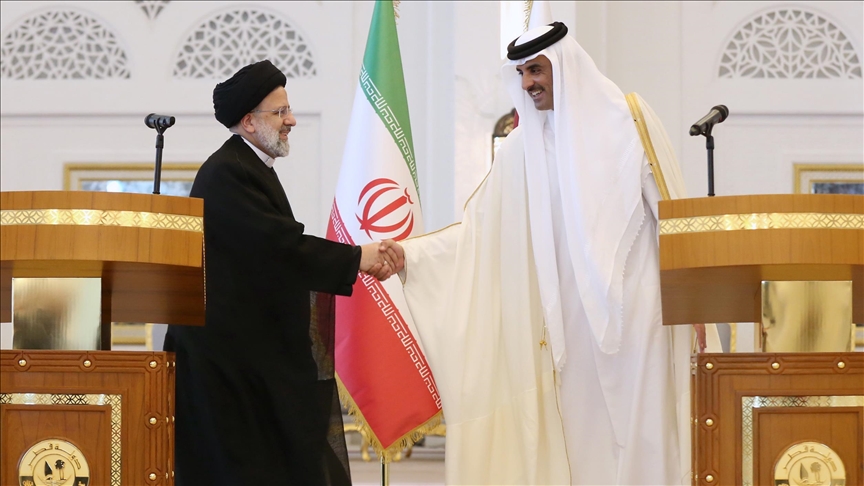Qatar’s Amir and Iran’s president discuss regional de-escalation following Iran’s retaliation against Israel over the weekend.
Qatar’s Amir Sheikh Tamim bin Hamad Al Thani discussed the necessity of de-escalating a potential regional conflict in a phone conversation with Iranian President Ebrahim Raisi on Monday, following Iran’s retaliatory move on Israel.
Both leaders highlighted the urgency of implementing a ceasefire in the Gaza Strip and occupied Palestinian territories, echoing a shared aspiration for a sustainable resolution to the Palestinian file.
The phone call follows Iran’s retaliation against Israel on Saturday night in response to the bombing of its consulate in Damascus on April 1.
The Israeli airstrike resulted in the deaths of seven members of Iran’s Revolutionary Guards (IRGC), including two generals.
Saturday’s retaliatory strike marked Iran’s first direct military action against Israel.
According to Iran’s Islamic Republic News Agency, President Raisi “stressed the fact that the slightest action against Iran’s interests will be met with a severe, extensive, and painful response against all its perpetrators.”
Raisi cited the ongoing Israeli genocide in Gaza as underpinning the recent regional developments and pinnacle behind the “most important issue in the region and even the world.”
“He described the Zionist regime’s terrorist attack on Iran’s consulate in Damascus as a sign of desperation rooted in this regime’s failure to achieve its goal of attacking Gaza,” IRNA said.
Meanwhile, Iran’s Foreign Minister Hossein Amirabdollahian held a phone conversation with his counterparts from Qatar and Saudi Arabia, discussing the intricate web of regional dynamics.
The conversation with Qatar’s Prime Minister and Minister of Foreign Affairs Sheikh Mohammed bin Abdulrahman Al Thani on Sunday emboldened the mutual efforts to mitigate regional tensions.
During the exchange, Amirabdollahian reiterated Tehran’s stance on recent developments, particularly its retaliatory move against Israel within occupied territories, framing them within the bounds of legitimate and legal defence.
Highlighting Israel as a focal point of regional instability, he emphasised the imperative to address root causes to foster enduring security.
Sheikh Mohammed voiced Qatar’s “deep concern regarding the recent developments in the region, urging all parties to calm and exercise the utmost restraint,” Qatar’s Ministry of Foreign Affairs stated.
Moments before the Iranian move, several countries temporarily closed off their airspace until the next morning, including Jordan, Lebanon, and Iraq.
Iran had launched 170 drones, more than 30 cruise missiles, and more than 120 ballistic missiles, Israel’s military spokesman Daniel Hagari confirmed on Sunday, claiming Israel “intercepted 99 percent of the launches”.
Jordan, the United States, the United Kingdom, and France downed some drones and missiles.
Meanwhile, Iran’s state media reported that the country’s drone and missile attacks dealt “heavy blows” to an air base in the Negeb (Negev) desert.
A senior administration official separately told CNN on Sunday that Biden “made clear the U.S. will not participate in any offensive operations against Iran.”
Tehran said that it had notified Turkiye and regional countries about the planned attack 72 hours in advance, something that the U.S. denied.
The region has been witnessing a rise in tensions since Israel launched its genocidal war on Gaza on October 7, 2023. Israel has since killed at least 33,729 people in Gaza and displaced more than 80 percent of the population.
Such escalations have been occurring in the Red Sea and Yemen with the Houthis in addition to cross-border attacks between Hezbollah and Israel in southern Lebanon.







